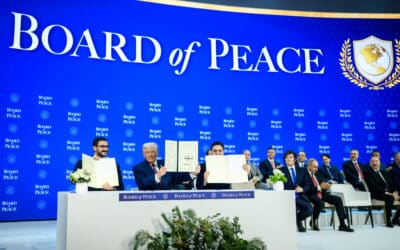Senator Mike Lee introduced a bill to remove the US from the North Atlantic alliance, arguing that the collective defence pact is not within US national security interests.
The legislation titled the ‘Not A Trusted Organization Act’ or the ‘NATO Act’ argues NATO expansion led to the Russian invasion of Ukraine. “The dissolution of both the Warsaw Pact and the Soviet Union fundamentally altered the security environment in Europe and rendered NATO’s founding collective defense mission irrelevant,” the bill states. “Despite its waning relevance and prior assurances to the contrary, NATO began a profound eastward expansion in 1999, which, as of 2025, culminated in a land border with the Russian Federation that exceeds 1,500 miles and encircles the Baltic Sea.”
It adds, “The invasion of Ukraine by the Russian Federation in 2022 demonstrates the Russian Federation’s willingness to employ military action in response to perceived security threats.”
In 2007, Russian President Vladimir Putin warned that Ukraine’s ascension into NATO would be a major national security risk for Moscow. Over the next decade and a half, the bloc would increasingly treat Kiev as a member, even if it would not grant Ukraine official membership in the alliance.
In 2021, the Kremlin sent a proposal to the White House that would have averted the war if NATO had agreed that Ukraine would not become a member. However, the Biden administration never seriously considered the offer, and NATO continued to express that the door to membership was open to Kiev.
In addition to starting a major war in Europe, Lee says membership in NATO is causing the US to pay for Europe’s defense. “Since the founding of NATO, the United States has shouldered the burden of what was characterized as a ‘collective’ security alliance, as the largest financial and hard power contributor,” the bill explains.
President Donald Trump is attempting to address the issue by mandating all alliance members to spend 5% of GDP on defense. However, Lee notes in the bill that nearly one-third of the bloc currently does not meet the current 2% minimum.
Lee argues that the current issues of the alliance create a situation where “Membership of the United States in NATO is inconsistent with the national security interests of the United States.”
































